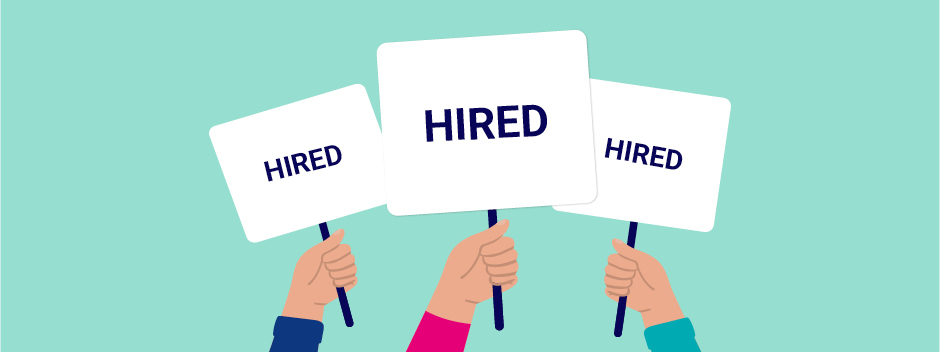Should you start with a phone interview, or meet candidates in person straight away? And will you need to set up a panel interview?
Justin Boots, HR Business Partner at SEEK says the step you take next will depend on your business and the demands of the role you’re hiring for.
Watch as he shares tips for perfecting your interview process:
When should you use a phone interview?
Phone interviews are useful if you want to refine your shortlist of candidates, or if you can’t gain enough information from a resume.
“If I couldn’t distinguish between 10 or 15 candidates and I needed to cut that down in a quicker and more coordinated fashion, I may use a phone interview,” Boots says.
“I may also use a phone interview when trying to bring all of the parties who are required to assess the candidate together is not logistically possible, or it’s going to take way too long.”
When should you conduct an in-person interview?
If you have a refined shortlist and want to find out more about a candidate’s personality and presentation skills, use an in-person interview.
“I would do an in-person interview to assess how they present themselves in front of a panel or a group of stakeholders, depending on the nature of the business,” Boots says.
How many people should be in an interview?
Deciding how many people should be on the interview panel comes down to the size of the business and the demands of the role, Boots says.
One or two people on the interview panel is enough if:
- you’re operating in a very small business
- you’re hiring for a small, non-complex role
- the role has low ambiguity
- the role is well-structured and well-defined.
“At the very least, businesses should aim to have at least two people on any interview panel because everybody comes with their own internal biases,” Boots says.
“Having someone on that interview panel who is completely different to you in their thoughts or background, or any of those markers of diversity, is really powerful in terms of getting the best outcome for the organisation you’re hiring for.”
When should panel interviews be used?
In cases where a candidate will need great people skills or the role is complex, a panel interview will get the best results, Boots says.
Use a panel interview if you’re looking for a candidate who:
- is able to take on a role with a high level of complexity or ambiguity
- has excellent stakeholder management skills
- has the ability to communicate with diverse groups of people
- is able to influence across a broad range of stakeholders.
Why are panel interviews effective?
Panel interviews also give hirers the chance to see how candidates respond to different style of questioning, Boots says.
“Some people may have a very direct questioning style within that interview, and some people may have a very indirect questioning style,” he explains.
“The candidate’s ability to be able to navigate through those different styles, and apply their own style to the responses, is what hirers are looking for.”

